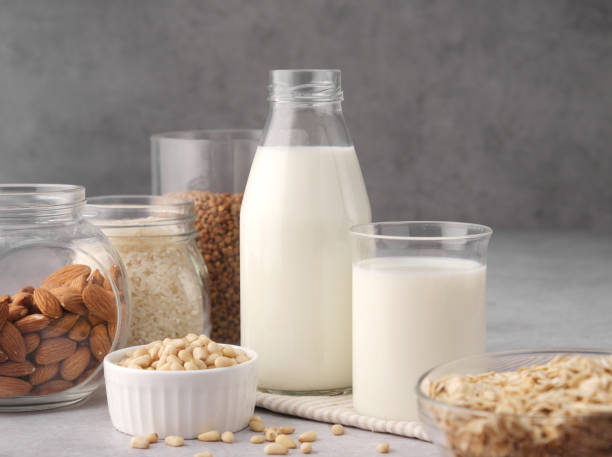
The use of plant-based milk alternatives has become increasingly popular in recent years as people choose dairy-free items. It can be difficult to select the most suitable alternative made from plants, given the numerous choices that are available. Aspects like taste, nutritional value, dietary restrictions, and individual preferences take into consideration when making this decision. This article will help you pick the right dairy made from plants that will meet the needs and tastes of your family.
Demand for kids milk alternatives in conjunction with the growing demand for plant-based food, has increased. Whether you are lactose intolerant, following a vegan lifestyle, or simply looking to explore new options There is an extensive variety of milks made from plants that you can choose from. Be aware of the variables that impact the choice you make can help determine the best one that meets your tastes as well as your nutritional requirements.
Understand Plant-Based Milk
The phrase "plant-based" is a reference to milk substitutes that come from plant-based sources. Most commonly, these include soy rice, almonds, oats coconut, hemp and milk. Every kind of plant-based milk comes with its own distinct taste as well as texture, nutrition characteristics.
Be aware of your eating desires and needs
When choosing children's plant-based milk, it's crucial to consider your dietary needs and personal preferences. Certain types of milks will be better for people with specific allergies or dietary restriction. Some people with allergies to nuts shouldn't drink cashew or almond milk, as well as those allergic to soy ought to opt for alternatives such as oat milk or rice milk.
Examine the nutritional content
The various plant-based milks have different nutritional benefits. They may also be enriched with important minerals and vitamins and others could include natural ingredients and have certain health benefits. Check the nutrition content to ensure it is in line with the goals of your diet. Take note of the calcium, protein as well as the vitamins B12 and D, and C.
Assess the taste and texture
The texture and taste have a major impact on the pleasure of milk made from plants. Some individuals prefer a creamier texture, while some prefer a more light feel. Exploring different kinds of milk made from plants will help you find the tastes and textures that appeal to your taste.
Verify for allergens and sensitivities.
It's essential to check the labels attentively if you suspect you are allergic or sensitive. There are some plant-based milks that include sweeteners, or other components that can trigger an allergic reaction. Be chickpea nutrition of the ingredients could ensure your security and enjoyment of the chosen plant-based milk.
Consider Sustainability and Ethical Factors
If you are concerned with sustainability or ethical issues, it is important to take into account the environmental impacts on the creamy chickpea milk they choose. Some plant-based milk options use less energy to make and have a lower carbon footprint compared to traditional dairy products. It is also possible to align your choice with ethical questions by checking a company's commitment to fair-trade practices and the values it holds.
Explore and Discover Your Favorite
It is best to experiment to discover what plants-based milks you like. Begin by testing different milks and flavours available on the marketplace. There may be a reason that certain kinds of milk are more for certain recipes or your tastes. Keep an open mind and be willing to try new things until you find your favorite.
Summary
The best milk made from plant sources can improve your nutrition and satisfy your needs. When you consider factors like taste, nutritional content, dietary restrictions, and personal values, you can find kids milk which is compatible with the way you live. Explore the variety of options and choosing the best plant-based dairy.
